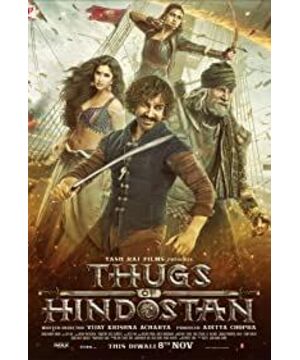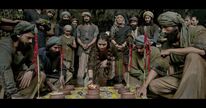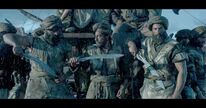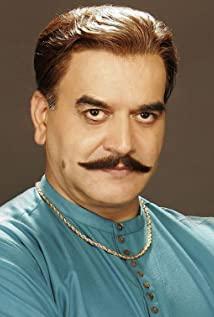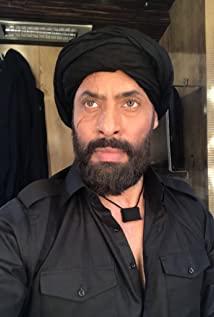1.
What is the best state of a person chasing stars? Probably Aamir Khan.
Aamir Khan, known in Chinese as "Uncle Khan", is deeply loved by everyone. We like his tendons, his acting skills, and the films he starred in revealing society and human nature.
Who is Aamir Khan's idol? Another star of the film is Amitabh Bachchan. Amitabh Bachchan is known as the godfather of Indian cinema. Born in 1942, he is 23 years older than Aamir Khan. When Bachchan appeared in his first film, Aamir Khan was only 4 years old.
Aamir Khan admires Bachchan, not only because of his film accomplishments, but also because of his exposure to social reality, his appeal for the status of women, and so on. In this regard, they are in the same line.
When Aamir Khan was interviewed, he once said: I have been a loyal fan of Mr. Bachchan all my life. I have been in the industry for 30 years, but I have never cooperated with him. I don't know if young people today can understand what it means to work with Mr. Bachchan for our generation. "
So, when Aamir Khan and Bachchan first meet on the boat in this movie, the slow motion, the close-up of the face, and the hilarious music, can't help but feel like a big fan At the meeting, Aamir Khan's eyes were shining, and I was afraid that Aamir Khan would hand over his arm and say, "Can you sign my autograph?" (Director: Pi I'm happy for a while.)
2.
This movie is not a heroic movie in the traditional sense. Filangi played by Aamir Khan is a gangster who makes a living by deception. This kind of ruffian and bad feeling is different from the "positive" characters he played before. , As a person in his 50s, Uncle Mi can still act like this little ruffian. Needless to say, Uncle Mi's acting skills have always been online.
Compared with Aamir Khan's previous role, Ferangi's role is fuller, he is a "good guy", and he will be cowardly in the face of danger, more like a flesh-and-blood person.
The plot is reversed and reversed and reversed again. Although I knew from the beginning that this film must have a happy ending, Uncle Mi is also a "good guy" in the macro situation, but in the process of watching, I fell into countless guesses. It is also a great joy for the screenwriter to dig a hole for Uncle Mi and how to get it back.
3.
However, apart from the plot, I think many details are very interesting.
For those who have seen the movie, some people may wonder about the pro-Indian British (forgot what it was called), why did he always stand in front of the British side, and "suddenly" kissed the Indian when the movie ended?
Although it is said that the Chinese version has been shortened by about 40 minutes, in the version released in China, the director has actually given a lot of foreshadowing :
For example, when the British army attacked the Azad base, he automatically asked for orders to "live" everyone during the attack, which undoubtedly wanted to give the Indian thugs a way out; another example, when he met Aamir Khan on a narrow road. At times, when the two faced off with swords, he was always with one hand on his back and duel with Aamir Khan with only one hand. In a sense, he did not intend to fight at the beginning. Aamir Khan died, albeit in a perilous situation of "you die or I die"...
At the very beginning of the film, a giant ship appeared on the wide ocean. The grand layout and effects made people think of the Pirates of the Caribbean every minute; and at the end of the film, it was also the ocean and the giant ship, the gangster played by Aamir Khan, and The magic stick and the dancer set off for England together, and Aamir Khan said: If I don't sell England, I won't be called Filanji. This kind of "belief" is merged with the "belief" of pirates, which cannot be said to be a coincidence.
Although in some fight scenes, the details are comparable to China's "Tear Devils", but I don't think this affects the effect of the whole film. Because although the film's theme is to show the more serious topic of India's resistance to British colonization, it is essentially a comedy, and from this point of view, these details have added comedy effect. On the other hand, at least in China, it is impossible to make a movie with this theme into a comedy. It is even more regrettable that some of the anti-Japanese war movies are meant to be serious, and they give the audience the feeling of a comedy movie... …
4.
In the movie, the actual and spiritual leader of the Indian mob is called "Azad". There is a very interesting thing, Aamir Khan's youngest son is also called Azad, ask, when the actors in the play shouted Azad, what was Aamir Khan thinking in his heart?
Azad itself is a symbol of freedom. In his "Garden", the Persian poet Shik Sadi said: If you are rich, be as generous as a jujube tree; but if you have nothing to give, be an Azad, that is freedom people.
So what exactly is freedom? Hick Sadie likened freedom to a cypress tree. Most trees in the world have their own growth cycles. They sprout in spring, flourish in summer, fall leaves in autumn, and dry up in winter. They change according to the changes of the four seasons, year after year; , No matter spring, summer, autumn or winter, it will always be lush and lush, not bound by seasons.
To be able to take off the shackles is freedom. Therefore, in order to resist the British colonial rule, it is freedom to "not be taxed on the road of one's own family vacation"; no matter whether the ideal can be realized or not, Baqiang said: "having the courage to pursue dreams" is freedom; but these concepts are too much Obviously, I think the greatest freedom conveyed in the film is to believe in yourself.
Baqiang's "trust is my instinct", and he has always insisted that it is freedom; and Aamir Khan, at the end of the film, still believes in "deception" and insists on living in his own way. He is even more a hero. Therefore, at the end of the film, Aamir Khan did not marry the queen, went to the pinnacle of his life, and began to "swindle and cheat" in the United Kingdom, which is the best ending of this film.
5.
Thoreau wrote in "Walden": "Human beings are living a life of quiet despair. The so-called resignation is the sure despair. . . A frozen, unknowing despair." Bachchan can plant new shoots in the "barren land", that's hope; but Felangi is still Feilangi, that's freedom.
Choose what you can take, take on what you choose, "Don't be sad, my child, who can appoint you to do what you haven't done yet?"
View more about Thugs of Hindostan reviews


